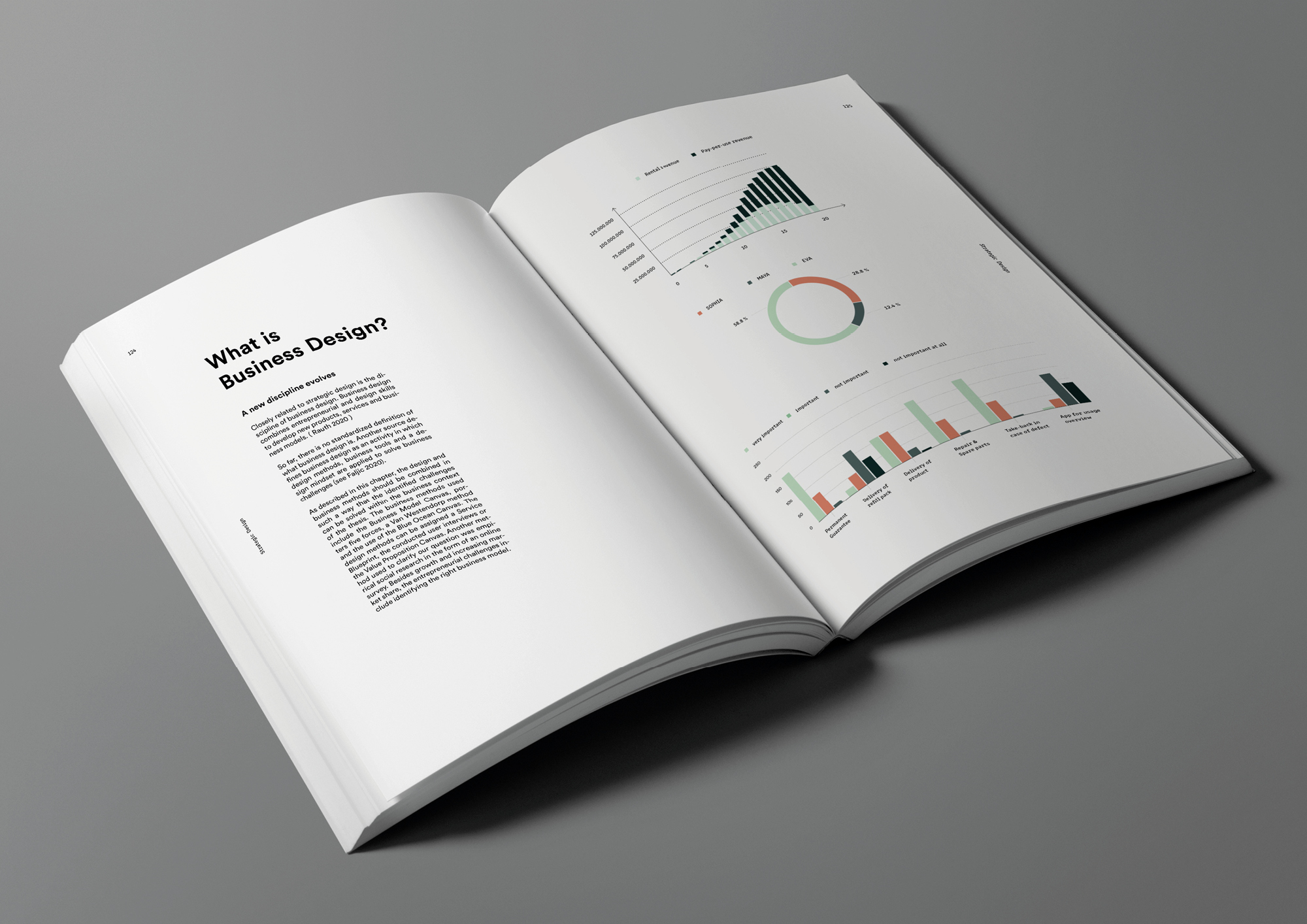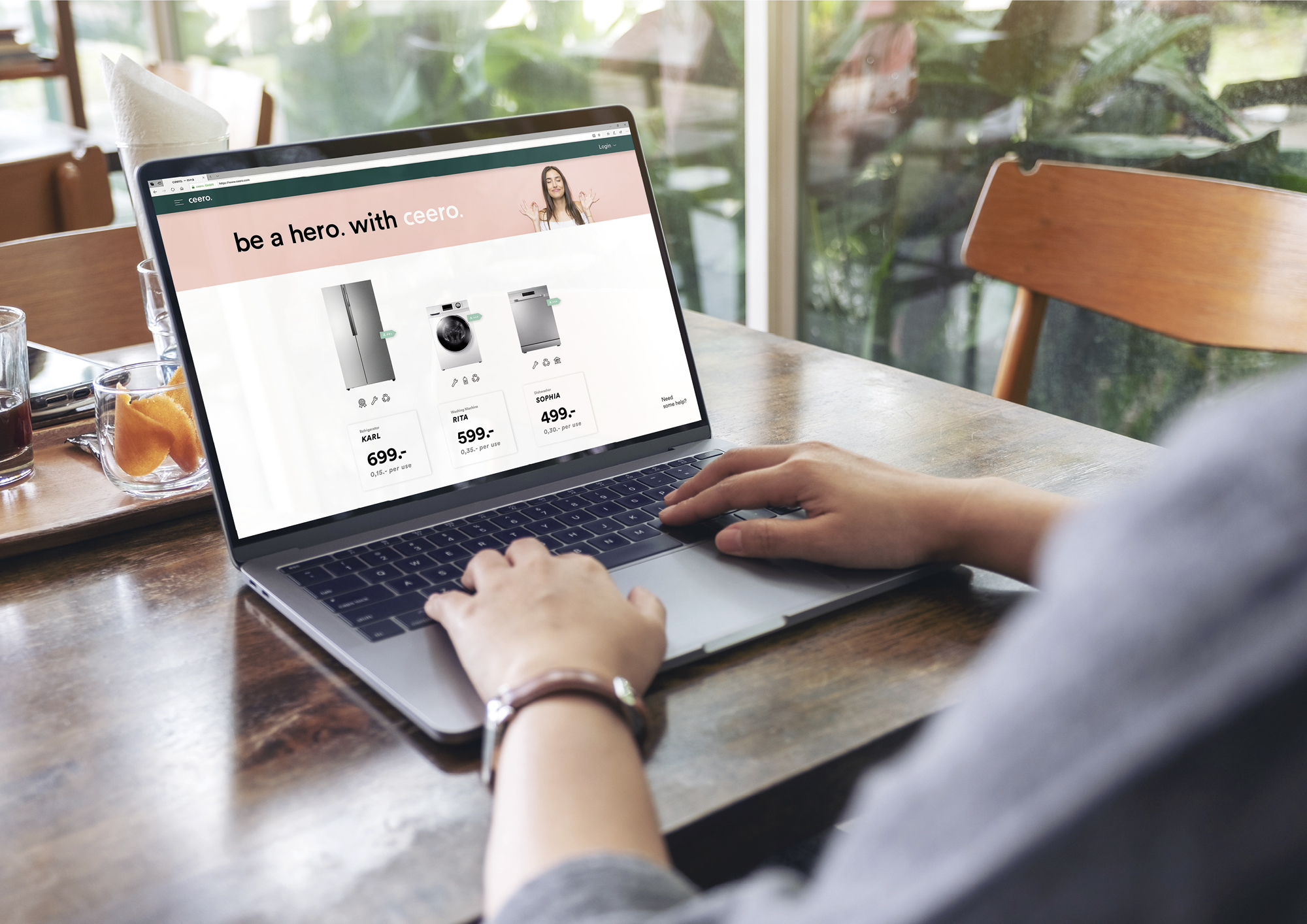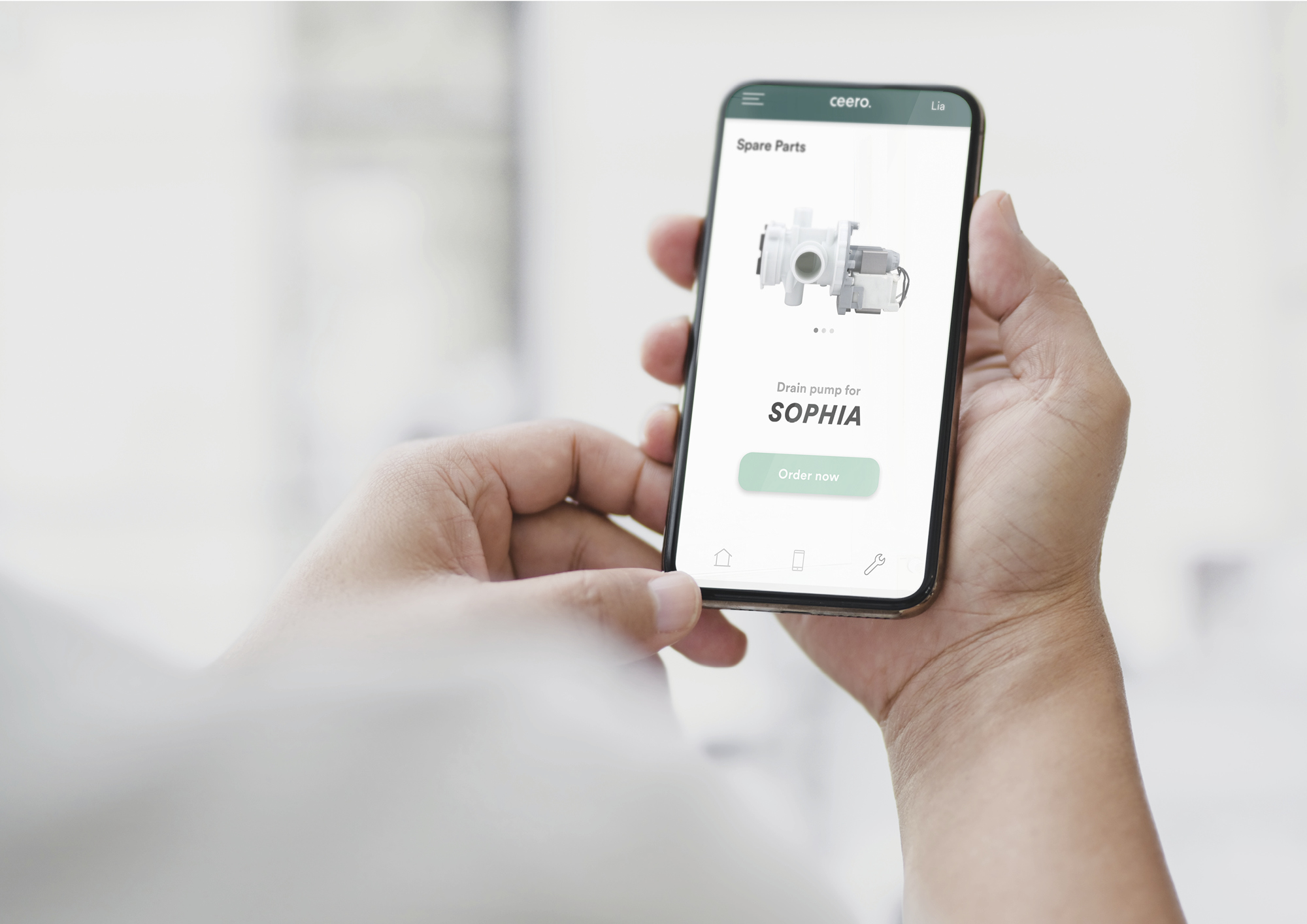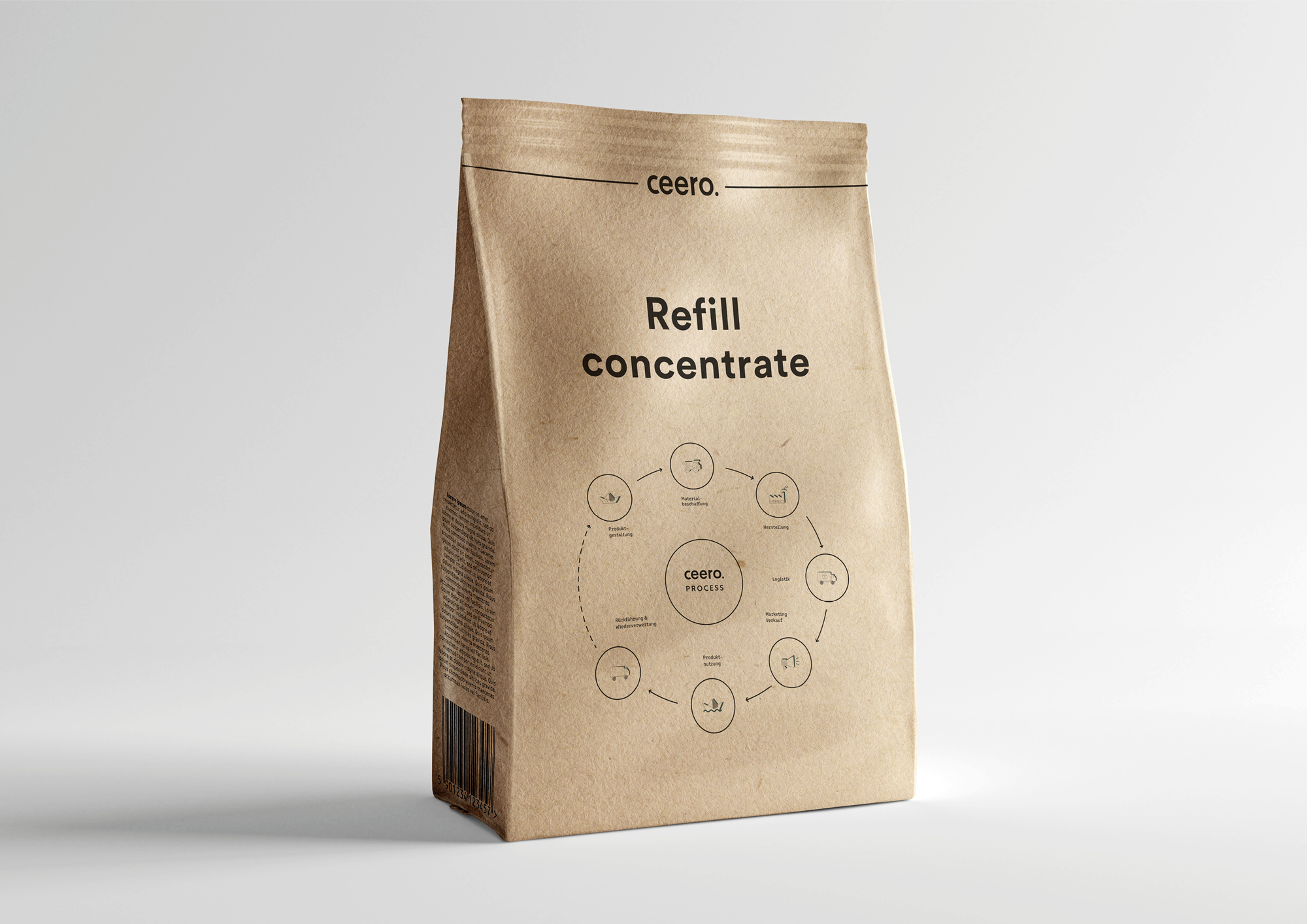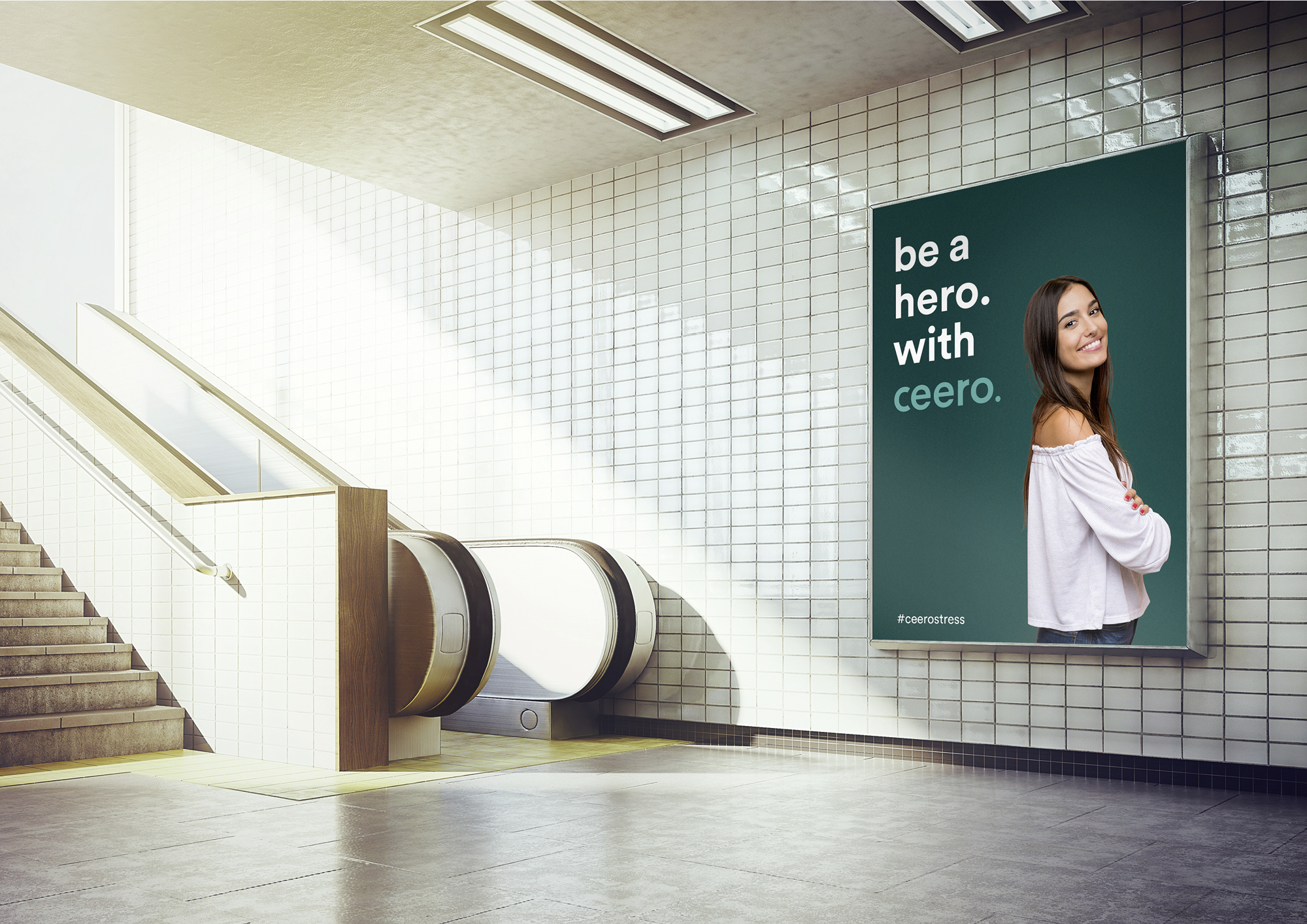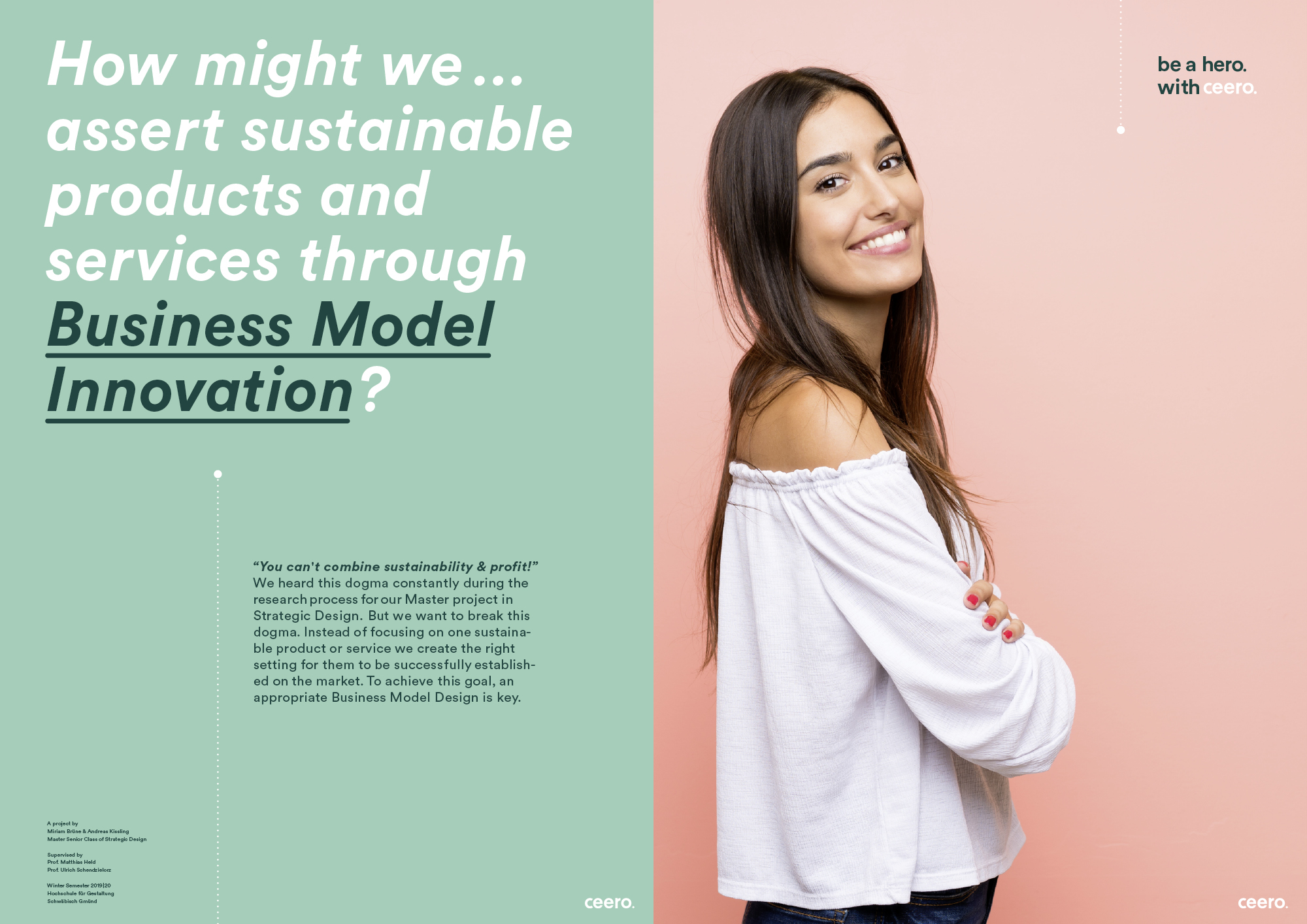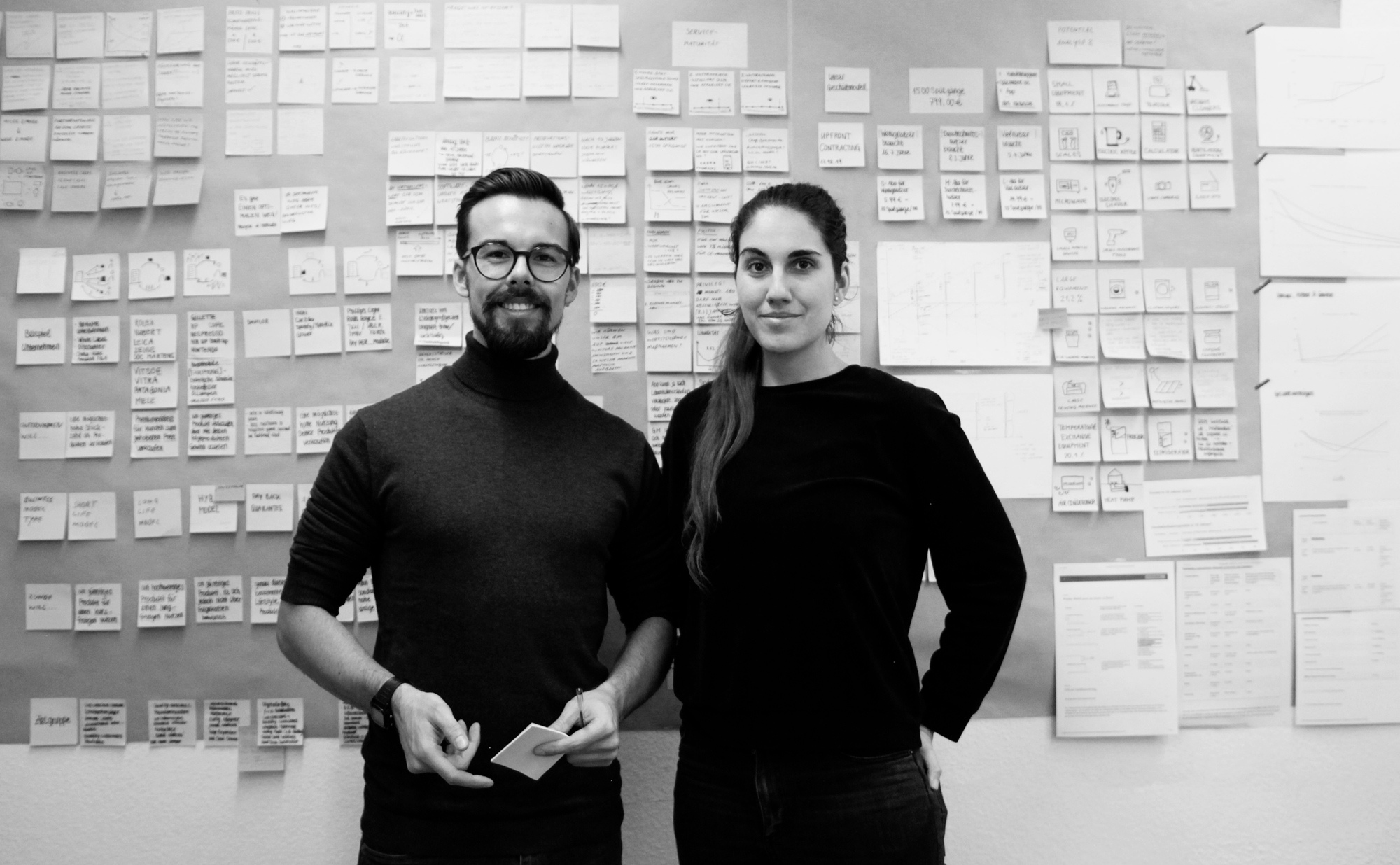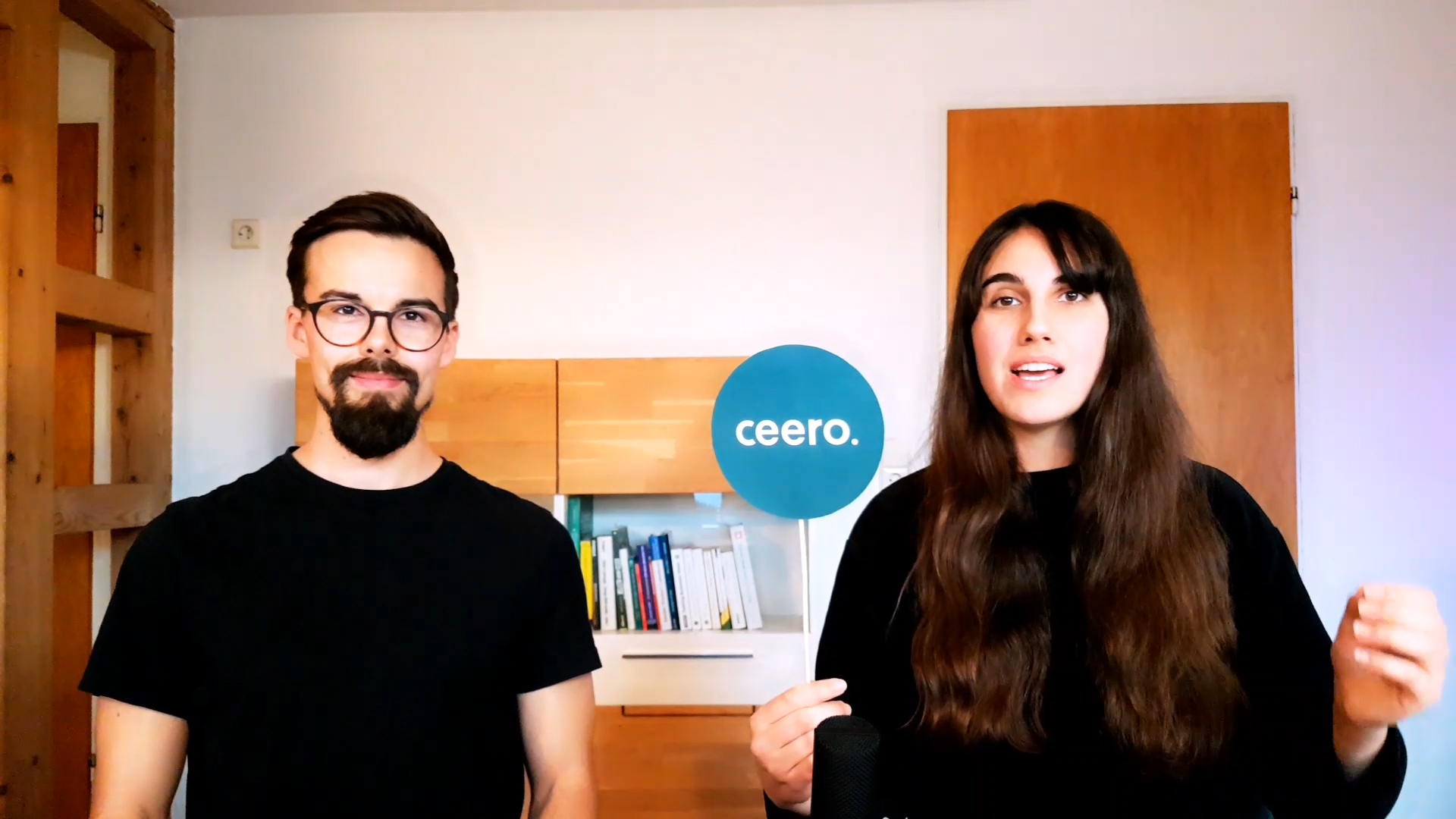"You can't combine sustainability and profit!" - A dogma we heard continuously during the research process for our master project. We wanted to break this dogma and find an innovative solution. Instead of focusing on one sustainable product, we approached the complex problem of plastic waste and e-waste through a holistic approach. Our aim was to create the right setting for those products to be successfully established on the market. To achieve this goal and the Sustainable Development Goal No. 12 [Responsible Consumption and Production] we discovered that an appropriate Business Model Design is key.
So the Key Question was: How might we assert sustainable products and services through Business Model Innovation?
After conducting extensive secondary research, we talked to many experts from different fields, among them designers, engineers, investment bankers and business consultants. We were then able to define our main part: The analysis of business models in combination with new technologies and their influence on the prevention of e-waste and plastic waste. Based on our assumptions we developed a first Product-as-a-Service business model for a dishwasher. To test the acceptance, we conducted an empirical study with 250 participants. For the study we combined quantitative and qualitative research methods: One part of the study was an online survey which included questions about user behavior and willingness to pay for certain offers. Besides, participants had to choose between a conventional, a rental and our offer in an A/B testing. In combination with personal empathy interviews we again refined our user knowledge and were eventually able to determine our target group and its needs. The result is a business model that combines economic, ecological and social interests.
We solved the problem of high upfront costs for manufacturers and now offer a 10 years contract, which includes a rented dishwasher for 499 Euro. Moreover the user now pays for the performance of the dishwasher: 0.30 Euros per rinsing cycle. This small fee not only includes the rinsing, but a full service package with dishwashing detergent, repair service and lifetime warranty.
To communicate the business model appropriately, we developed the fictitious startup ceero. It specialises in the rental of large household appliances. The revenue generated will be used to produce radically redesigned equipment based on the principles of the Circular Economy. Our products are designed for easy disassembly and remanufacturing to give them a second or even third life. Whilst ceero. takes full liability for any repairs, the company‘s products are designed to facilitate self repair in case of a defect. The lifetime of the products increases significantly and the user is 'nudged' to act more sustainable through the business model. Built-in sensor technology and the IoT makes it possible to identify defects quickly. Instead of planned obsolescence, repairability and longevity are the key factors for ceero.‘s longterm success.
With our project we want to prove that economic growth is not exclusively related to new products and resource extraction - but that value can still be created by decoupling these factors. In conclusion, our project has to be seen as a call for manufacturing industries to engage with the innovation of new business models to make an important contribution towards a Circular Economy.
